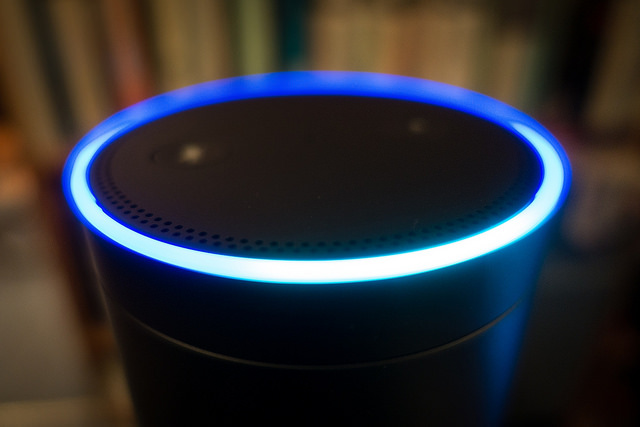
Amazon is balking at a search warrant seeking cloud-stored data from its Alexa Voice Service. Arkansas authorities want to examine the recorded voice and transcription data as part of a murder investigation. Among other things, the Seattle company claims that the recorded data from an Amazon Echo near a murder scene is protected by the First Amendment, as are the responses from the voice assistant itself.
Amazon said that the Bentonville Police Department is essentially going on a fishing expedition with a warrant that could chill speech and even the market for Echo devices and competing products. In a motion to quash the subpoena, the company said that because of the constitutional concerns at issue, the authorities need to demonstrate a "compelling need" for the information and must exhaust other avenues to acquire that data.
The motion says:
Indeed, the publicity generated by this search warrant in particular has led to numerous articles raising concerns about the use of Alexa-enabled devices and other in-home intelligent personal assistants, and in particular whether use of such devices exposes customers’ audio recordings and information requests to government review. Such government demands inevitably chill users from exercising their First Amendment rights to seek and receive information and expressive content in the privacy of their own home, conduct which lies at the core of the Constitution. To guard against such a chilling effect, this Court should require the State to make a prima facie showing that it has a compelling need for any recordings that were created as a result of interactions with the Echo device, and that the State’s request bears a sufficient nexus to the underlying investigation.
According to the warrant, Bentonville authorities are seeking "audio recordings, transcribed records, or other text records related to communications and transactions" between the Echo device and Amazon’s servers during the 48-hour period covering November 21-22, 2015. Amazon said the authorities should, at a minimum, establish "a heightened showing of relevance and need for any recordings" before a judge allows the search. And even if the search is upheld, a judge must privately review the contents first to establish that there is a "nexus" between the data and the alleged murder.
Amazon informs the Benton County Circuit Court that the Amazon Echo is a "9.3-inch voice-controlled speaker equipped with seven microphones, which use beam-forming technology to pick up sound from anywhere in the room, even when music is playing."
Amazon said when the user awakens the device with a "wake word," the "Echo connects remotely to the Alexa Voice Service—Amazon's intelligent personal assistant—and transmits audio to the Alexa Voice Service in the cloud to process and respond to the user's request." Amazon points out that no audio is stored on the device itself, but it is available in Amazon's cloud and on the Alexa mobile app on Android, Apple, and Fire devices. The Nexus phone allegedly owned by murder defendant James Bates was encrypted at the "chipset level" and therefore was not accessible to the authorities, Amazon said.
"If the defendant had installed the Alexa App, and the cell phone could be accessed, then any stored audio recordings, transcripts of recordings, and records of responses from Alexa would be accessible on the cell phone," Amazon said.
Amazon argues that not only is the privacy of Amazon Echo users at stake, so is the privacy of Alexa's responses:
In addition to the recordings of user requests for information, Alexa's responses are also protected by the First Amendment. First, as noted above, the responses may contain expressive material, such as a podcast, an audiobook, or music requested by the user. Second, the response itself constitutes Amazon’s First Amendment-protected speech. In a similar context, courts have recognized that "the First Amendment protects as speech the results produced by an Internet search engine."
The warrant at issue concerns the 2015 death of former Georgia police officer Victor Collins. He was found dead in a hot tub at the Bentonville home of Bates, who claimed the death was an accidental drowning. Arkansas police believe Bates died after a struggle. They suspect that the Amazon Echo they found streaming music near the hot tub may help solve the case.
Bates has pleaded not guilty and is free on $350,000 bond. No hearing date has been set on Amazon's motion to quash. Prosecutors told local media they would soon respond to the motion.
reader comments
137